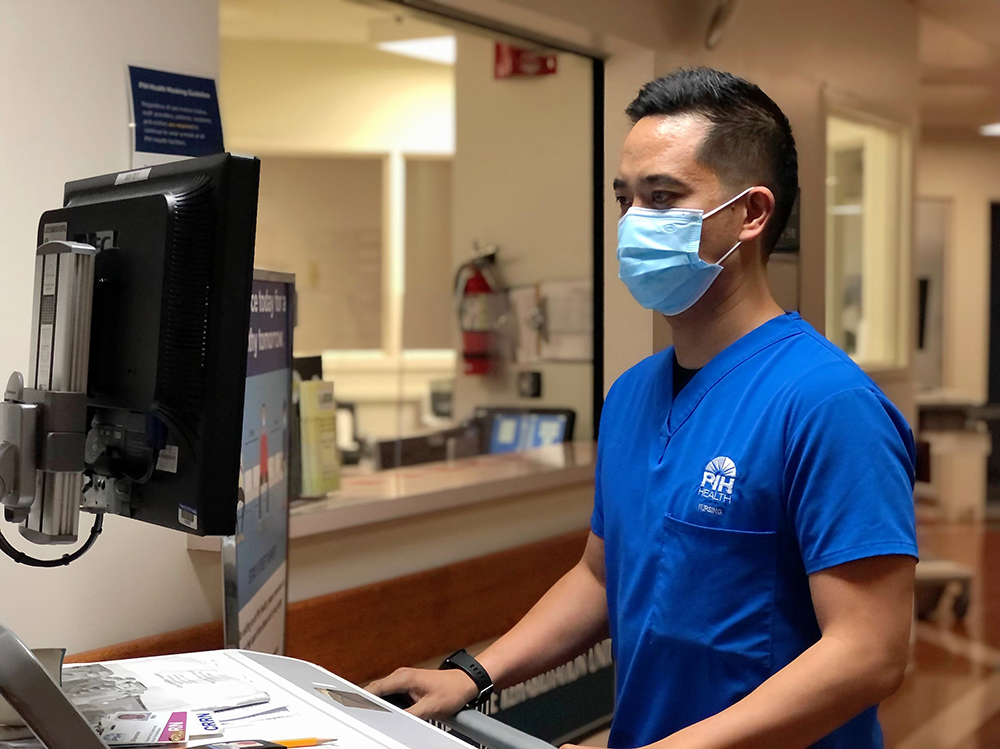My Specialty
Acute Rehabilitation, Shannon Bocalbos, PIH Health Good Samaritan Hospital
Helping patients regain independence after serious illness or stroke

Shannon Bocalbos, RN, BSN, CRRN
Department Supervisor Inpatient Acute Rehabilitation
PIH Health Good Samaritan Hospital, Los Angeles
Tell us about the arc of your nursing career.
I’ve been a rehab nurse for 21 years. I became a nurse back in March 2001. I had originally wanted to focus on emergency nursing, but when I was a new grad, the CNO at one of my former employers offered me a position in the inpatient rehab unit. Within 12 months, I was offered a charge nurse position. Since then, my love of the specialty has grown exponentially.
What is the inpatient acute rehabilitation unit and what is its mission?
It’s a 23-bed inpatient unit where we focus on helping the patient gain increased independence in the activities of daily living.
We see patients who have suffered debilitating illnesses or incidents such as strokes; who have neurological disorders that require intensive therapy to increase the patient’s quality of life; and who are recovering from major surgery, including heart surgery and spinal surgery. PIH Health Good Samaritan Hospital has Comprehensive Stroke Center certification, so the majority of the patients on our unit are stroke patients.
We get people ready to go back into the community and lead the most functional and independent lives possible based on their condition, age, potential for rehabilitation and other crucial factors.
What do you love most about your specialty?
In rehab, you get to see the positive outcomes from the hard work that patients do. Patients come into the unit requiring a lot of care from both therapy and nursing.
When they leave, usually within 10 to 14 days, they more often than not are able to experience modified independence, meaning they can go about their daily lives with a minimal amount of assistance. That’s basically the goal of the inpatient rehab setting: We not only provide positive outcomes for patients, but also improve their overall quality of life after surgery, stroke or other health event.
What are some common patient struggles that you see?
As nurses, we tend to focus a lot on the physical aspects — we want patients to get physically better. If we’re not careful, we can lose sight of the emotional and spiritual aspects of the patient’s loss and grief. The psychosocial issues are very important.



